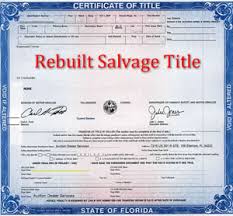 I’ve been helping a friend find a new car and the exercise has been mildly frustrating. After narrowing the search to a particular make and model, we’ve been on a mission to find something under budget. It seems that just when we find a car under budget, we discover it comes with really high mileage. When we find a vehicle well under the desired mileage it seems to inevitably lack certain “essential” features she really wanted – luxuries like wheels, doors, etc. We’ve been searching online for weeks and the perfect car continues to elude us.
I’ve been helping a friend find a new car and the exercise has been mildly frustrating. After narrowing the search to a particular make and model, we’ve been on a mission to find something under budget. It seems that just when we find a car under budget, we discover it comes with really high mileage. When we find a vehicle well under the desired mileage it seems to inevitably lack certain “essential” features she really wanted – luxuries like wheels, doors, etc. We’ve been searching online for weeks and the perfect car continues to elude us.
Until today.
On the outside, it looked showroom worthy. On the inside, the pictures looked immaculate. Not only did it come under both budget and mileage (with wheels and doors!) but it also included a lot of extras she really desired; sunroof, leather seats, backup camera, power everything and even seat warmers. I called the dealership to find out more details about this gem and why it seemed too good to be true.
Alex (the salesman) is very positive about this car. Even though it’s been on his lot for months, he assures me it’s a very good deal and car. It is not lost on me that I’m speaking with a salesman. Though I’m certainly impressed with the pictures and overall stats, I want to learn more. I ask a few more probing questions and receive all the answers I want to hear. Seldom is heard a discouraging word when speaking with a used car salesman. I thanked him for his time and hung up.
I’ll admit, it does sound good. It’s under budget. It’s under the mileage limit she was comfortable purchasing. It certainly has all the bells and whistles that she wants. She’s been without a decent car for so long that I know she’d be thrilled to finally have something newer and more reliable. I mean, it even has seat warmers. It must be God’s will.
But something seems off. It feels too good to be true. I don’t know this specific car or its previous owners and I certainly don’t know Alex or anything about his business or level of integrity. Though he admitted going to church, I have come to realize that doesn’t always mean that will ensure a trust-worthy transaction. Sadly, not all “Christians” are as honest as their Christ, especially when they have a “shekel” to gain in the process.
I decided to get on the phone and contact a good friend who is in the automotive industry, at the service department of a large dealership. If anyone knows cars, it’s Tim. I run the specs by him and he asks for the VIN # of the car we are looking at. With this number, Tim is able to instantly look up the history of the vehicle and find out exactly what’s been reported on it over the last few years. After a few minutes, Tim revealed why the car was priced so cheaply;
It has a salvage title.
A salvage title is given when that vehicle has been significantly damaged and/or deemed a total loss by an insurance company that paid a claim on it. In other words, it is declared “salvage” when the insurer determines that the repair or replacement cost is in excess of approximately 70% of its market value at the time of the accident.
Though we were disappointed to learn this information, we were grateful we took the time to ask someone in-the-know about the car’s invisibly sordid past. Somehow Alex failed to mention the car’s accident history. Shocking.
I’ve been pondering this revelation all day today. I’ve come to realize that in some ways, we are very much like the cars I’ve been looking at. We come in all shapes and sizes and varying makes and models. Some look more appealing on the outside. Others have an amazing interior. Some even have both. However, all of us – regardless of our age – have a history. All of us, in some way, have some mileage in our past.
The truth is if you have parents, have been through middle school or college, have been married, divorced or have children – you come with some extra mileage that is hard to hide or ignore. You might still look good on the outside, but your accident report has some pages in it. Many of my readers have been in “accidents” where their vehicles have been severely damaged. Speaking personally, I’ve experienced too many “wrecks” to count. On top of the normal “fender benders,” I’ve received a plethora of moral dents from reckless driving, have been totaled in a divorce and show a lot of “wear and tear” that comes with high mileage on rough terrain. Simply put, if I was a car – I would have a salvage title too. Regrettably, I have caused significant damage and have been deemed (by some) a total loss.
I’ve thought about the car a lot today and how I relate to its depressing predicament. I know what it’s like to experience a life-changing crash and the time and cost it takes to rebuild and look towards a future use. A new hood, a new engine, a new paint job are all part of the fix, but in the end – I still have a salvage title, a pointer to a past I just can’t change or ignore.
Here’s the painful reality for those who relate to my position. There are some “car buyers” that won’t look our direction. There are “insurance carriers” who will deem us a total loss, in spite of our improved changes. There are “drivers” who would not feel safe taking a ride in our car. There will always be a tire-kicker who will point to our salvage title and use that as an excuse to keep us on the lot. And like it or not, they have the freedom to make that choice.
If anyone knew what it was like to be a demolished car in the queue for the trash compactor, it was the thief on the cross. To say he had destroyed his car was an understatement. If anyone had a salvage title, it was him. His rap sheet had more dents than a demolition derby car. Not only had he traveled too many miles, he was simply out of gas. A human court deemed his life a total loss. His wrecked life was about to be traded in at the Dealership and within a few hours, life as he knew it was over. I could drag on the illustration further, but you get the point. If you know the story (Luke 23), you know his salvage title was replaced with a clean one. The Dealer graciously took his broken Prius and offered him Paradise instead. The jalopy got Jesus. (Ok, I’ll stop)
And likewise, our moral salvage title has been replaced with a clean one, in Christ.
As hard as that is to accept some days, I take refuge in the fact that my God loves restoring old vehicles. He’s a God who delights in the redemption process and sees value in the cars that others consider too damaged or with too many miles.
If you find yourself struggling with the condition of your vehicle or title status, be encouraged. There is a Master Mechanic who can not only fix the pieces that have been wrecked but can replace your current title with His and allow you to still travel to places of grace.
“If anyone is in Christ, he is a new creation. The old has gone. The new has come.” (I Corinthians 5:17)

 When something expensive is broken and money is flowing, we are quick to throw the broken item away and simply buy a new one. But when something costly is broken and cash is low, we must figure out how to fix what we have. Unfortunately, as a “wealthy, first-world” country, we have been allowed to replace too many things for too long. In fact, in many ways – it’s actually easier and cheaper to buy something new.
When something expensive is broken and money is flowing, we are quick to throw the broken item away and simply buy a new one. But when something costly is broken and cash is low, we must figure out how to fix what we have. Unfortunately, as a “wealthy, first-world” country, we have been allowed to replace too many things for too long. In fact, in many ways – it’s actually easier and cheaper to buy something new.